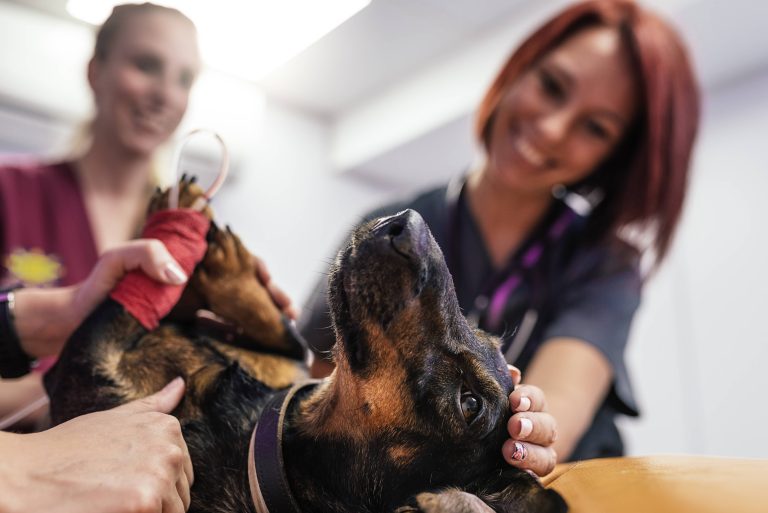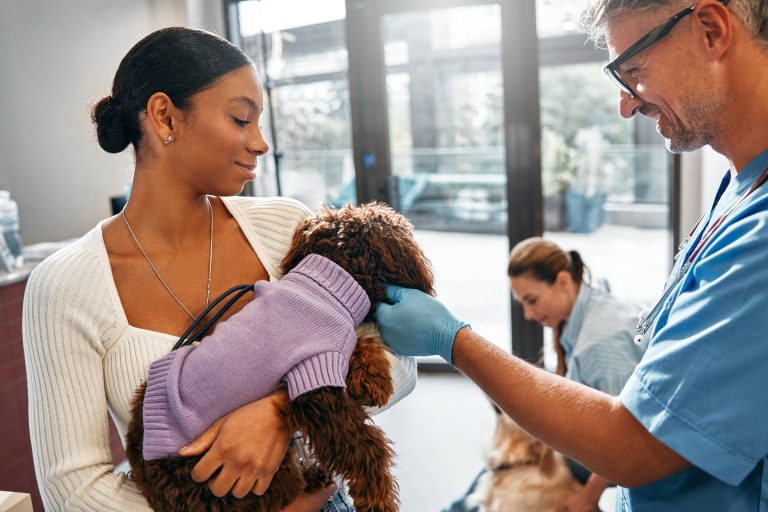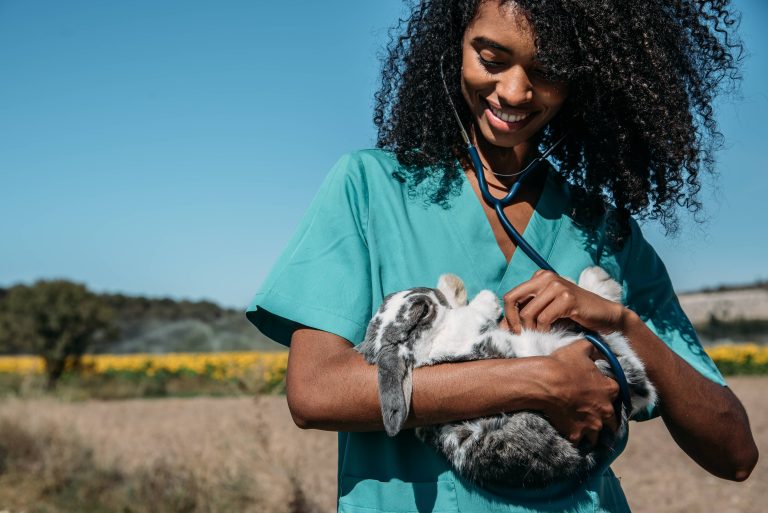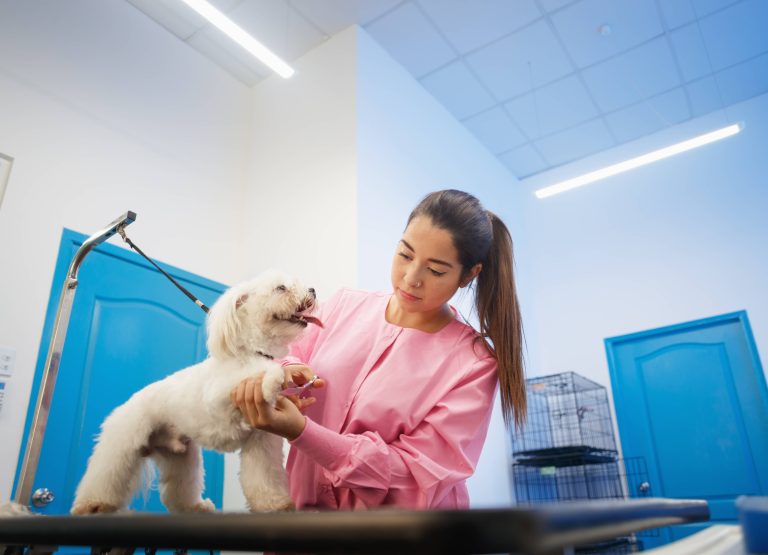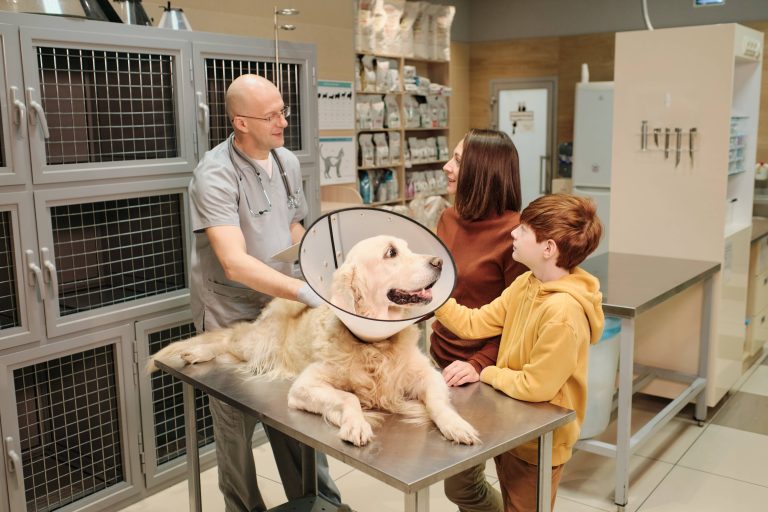It Is Important Not to Overfeed Your Pet

As pet parents, we are always looking to provide the best for our beloved companions. Well-balanced diets, regular exercise, and a lot of cuddles are just part of the package. However, when it comes to food, it can be tricky to strike the right balance. One mistake that many pet owners unknowingly make is overfeeding their pets. It may seem harmless or even kind to give into those pleading eyes looking up at you as you eat your dinner. However, overfeeding pets can lead to a host of health issues and even shorten their lifespan. In this blog post, we’ll explore the importance of not overfeeding your pet and how to maintain their ideal weight for optimal health.
Understanding the Dangers of Overfeeding
Gaining a few extra pounds is not just a cosmetic issue for pets; it can significantly affect their health and well-being. Here are some of the primary health risks associated with overfeeding your pet:
1. Obesity
The most obvious consequence of overfeeding is obesity. According to the Association for Pet Obesity Prevention, a significant percentage of dogs and cats in the United States are overweight or obese. Just as in humans, obesity can lead to serious health issues, including diabetes, joint problems, heart disease, high blood pressure, and certain types of cancer.
2. Reduced Lifespan
Numerous studies have shown that overweight pets typically live shorter lives. Extra weight places additional strain on the body’s organs and can lead to conditions that reduce quality of life.
3. Joint and Mobility Issues
Excess weight can put undue stress on a pet’s joints and ligaments, leading to arthritis and other mobility issues. This is particularly concerning for older pets, who are already at risk for age-related joint deterioration.
4. Respiratory Problems
Overweight pets are more likely to develop respiratory issues. Excess fat around the chest can limit lung expansion, making it harder for your pet to breathe, especially during physical activity.
5. Behavioral Changes
While this is less frequently discussed, overeating can lead to behavioral changes in pets. Mood swings, lethargy, and decreased activity levels are common in overweight pets. Additionally, the imbalance in their diet can sometimes lead to malnutrition, despite the higher calorie intake.
How to Recognize if Your Pet Is Overfed
One of the first steps to managing your pet’s diet is recognizing if they are being overfed. Here are some signs to look out for:
1. Weight Check
Regular weight checks are essential. Changes in weight, even gradual ones, can be a red flag. Consult your veterinarian to determine the ideal weight for your pet based on their breed, age, and health condition.
2. Body Condition Score (BCS)
Veterinarians often use the Body Condition Score (BCS) to help determine if a pet is overweight. This score usually ranges from 1 to 9, where 1 signifies emaciated and 9 signifies extremely obese. A BCS of around 4 or 5 is considered ideal for most pets.
3. Visible Signs
Signs of being overweight include difficulty in feeling the ribs, excessive fat around the abdomen, and lack of a discernible waistline. If you notice these signs, it may be time to adjust their diet and exercise routine.
Tips for Proper Feeding
Maintaining your pet’s ideal weight is not just about feeding them less; it’s about feeding them right:
1. Measure their Food
Use a measuring cup or a kitchen scale to portion out your pet’s food. It’s easy to accidentally overfeed if you are just eyeballing it.
2. Adhere to Feeding Guidelines
Look at the feeding guidelines provided on pet food packaging. Remember, these are just guidelines, and you may need to adjust based on your pet’s specific needs, which is best done in consultation with your veterinarian.
3. Avoid High-Calorie Treats
Treats contribute to your pet’s daily calorie intake, so it’s essential to incorporate them into their overall diet plan. Opt for low-calorie treats, and consider using healthy human foods like baby carrots or apple slices (without seeds).
4. Multiple Small Meals
Rather than two large meals a day, consider feeding your pet smaller meals more frequently. This can help curb overeating and keep their metabolism steady.
5. Exercise
Diet alone is often not enough to control weight. Regular exercise is crucial. Play fetch, go for walks, or engage in any activity that encourages movement. This is important not only for their physical health but their mental well-being as well.
Consulting with Your Vet
Finally, it’s crucial to involve your veterinarian in your pet’s diet and weight management plan. They can provide tailored advice, recommend specific food brands, and even suggest proactive measures like prescription diets if your pet is significantly overweight. Regular veterinary visits will also help catch any health issues related to weight gain early, making treatment more manageable.
Conclusion
While it may sometimes feel like an act of love to feed your pet extra, or cave into their begging, the best way to ensure a long, healthy life for them is to maintain a balanced diet. Avoid the trap of overfeeding and instead focus on nutritious food, proper portions, and regular exercise. Your pet will not just look better but will feel better, live longer, and be your happy companion for years to come. Responsible pet care includes making those tough decisions about diet and resisting the urge to give in to those imploring eyes. Your pet trusts you to make the best choices for them – let’s ensure we honor that trust.

